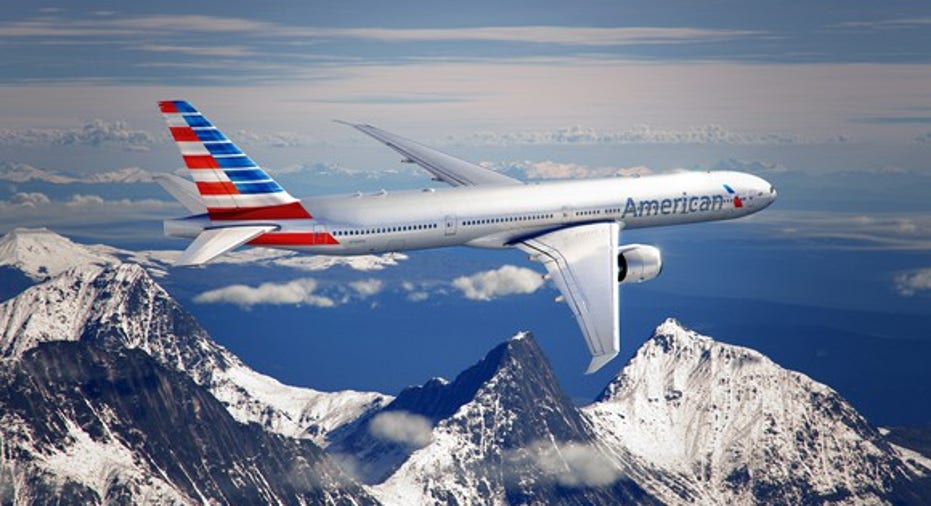American Airlines Signs a Lucrative New Credit Card Agreement

As supply growth continues to outpace air travel demand in the U.S., driving down fares, it is more important than ever for airlines to diversify their revenue sources.
For many airlines -- especially the larger players -- co-branded credit cards represent a key source of ancillary revenue. For example, as of 2014, Delta Air Lines' co-branded credit card relationship generated $2 billion of revenue annually, about 5% of the company's total revenue.
Airline miles (or points) remain a valuable reward currency, enabling airlines to bargain for increased compensation from credit card companies. On Tuesday, American Airlines became the latest airline to score a lucrative upgrade to its credit card revenue stream.
American Airlines renewed its credit card partnerships this week. Image source: American Airlines.
Lots of money here
Among the major airlines, Delta kicked off the recent round of credit card negotiations. In late 2014, Delta Air Lines extended its co-branded card agreement with American Express. The new agreement called for AmEx to pay 15% more per frequent-flier mile beginning in 2015.
As a result, the updated agreement generated more than $400 million of incremental value for Delta last year. Delta's credit card-related income will continue to grow over the six-year life of the contract, including another increase in the per-mile payment next year.
In the year and a half since Delta signed its new deal, nearly every other major airline has followed suit. In most cases, airlines have renewed with their existing partners -- but only after extracting much higher payments for each "mile" or point.
An unusual arrangement
American's current credit card arrangement is unique in that it has two card-issuing partners: Citigroup and Barclays , a legacy of its merger with US Airways. Citigroup has been the longtime card issuer for American Airlines, while Barclays worked with US Airways before the merger.
Most onlookers have assumed that the combined airline would eventually choose a single credit card issuer and that Citi would get the nod. Instead, American is reupping with both Citigroup and Barclays.
Citigroup will remain the main credit card partner going forward. Its AAdvantage cards will be the only ones offered through American Airlines' website. Citi will also get exclusivity for digital, mobile, and direct mail advertising and in American's Admirals Club airport lounges. But Barclays will be allowed to offer co-branded cards in airports and will get exclusive in-flight marketing rights for its cards.
American Airlines believes that working with two card issuers like this will drive faster growth in the AAdvantage cardholder base.
American will get a big revenue boost
As has become common in the airline industry, American Airlines is extending its co-branded credit card partnerships long before they were due to expire. This allowed it to get an immediate step-up in credit card revenue, followed by further compensation increases down the road.
In an SEC filing, American Airlines stated that the new agreements will boost its pre-tax income by $200 million during the second half of 2016. It expects the benefit to rise to $550 million in 2017 -- the first full year under the revised agreements -- and increase further to $800 million in 2018.
These contractual improvements will lift American's pre-tax profit margin by 2 percentage points by 2018, relative to what it would have been under the old credit card agreements. The company expects additional (but smaller) pre-tax income gains after 2018.
Keeping American Airlines' profit margin afloat
American Airlines expects to record most of the incremental revenue from its new credit card agreements in its "other revenue" line. This means that this extra revenue won't help American stem its recent declines in passenger revenue per available seat mile, a metric that excludes other revenue.
Nevertheless, the new credit card agreements will have a big positive impact on the bottom line, which is what really matters. American Airlines still likely needs to slow its capacity growth to avoid significant margin deterioration over the next year. Nevertheless, American's increased credit card revenue stream will help to offset some of the fare pressure that has haunted it lately.
The article American Airlines Signs a Lucrative New Credit Card Agreement originally appeared on Fool.com.
Adam Levine-Weinberg has the following options: long January 2017 $30 calls on American Airlines Group and long January 2017 $40 calls on Delta Air Lines. The Motley Fool recommends American Express. Try any of our Foolish newsletter services free for 30 days. We Fools may not all hold the same opinions, but we all believe that considering a diverse range of insights makes us better investors. The Motley Fool has a disclosure policy.
Copyright 1995 - 2016 The Motley Fool, LLC. All rights reserved. The Motley Fool has a disclosure policy.



















